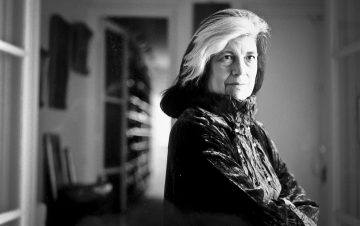Leo Robson at The New Statesman:
 Sontag emerges less as the heir to intellectual crusaders such as Hannah Arendt or Mary McCarthy than the better-educated cousin of the wily and preening Gore Vidal – another victim of an abusive single mother who was obsessed with renown and recognition, unable to identify as homosexual, and took cover behind a persona largely created in the New York Review of Books. Where Vidal’s contemporary Norman Mailer once hoped that he would go deeper into himself and turn “the prides of his detachment into new perception”, the feminist poet Adrienne Rich wrote of Sontag that “one is simply eager to see this woman’s mind working out of a deeper complexity, informed by emotional grounding”.
Sontag emerges less as the heir to intellectual crusaders such as Hannah Arendt or Mary McCarthy than the better-educated cousin of the wily and preening Gore Vidal – another victim of an abusive single mother who was obsessed with renown and recognition, unable to identify as homosexual, and took cover behind a persona largely created in the New York Review of Books. Where Vidal’s contemporary Norman Mailer once hoped that he would go deeper into himself and turn “the prides of his detachment into new perception”, the feminist poet Adrienne Rich wrote of Sontag that “one is simply eager to see this woman’s mind working out of a deeper complexity, informed by emotional grounding”.
In Sontag’s case, the wished-for development cannot be said to have occurred. The last few hundred pages of Moser’s book are relentless, at times harrowing. Sontag’s reputation was at its height. Her final novel, In America, was the surprise winner of the 2000 National Book Award for Fiction. She was tended to and lavishly supported by Leibovitz – one onlooker estimates an allowance of $15,000 a week – but as Moser says, “love and success and money made her unhappy and unkind”.
more here.
